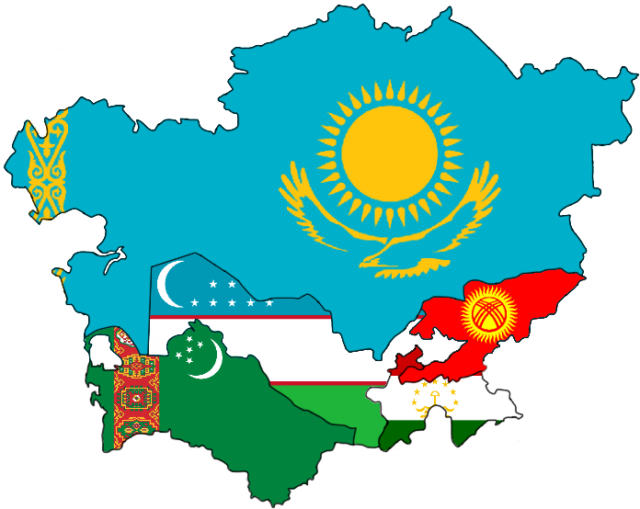
Geopolitical Report ISSN 2785-2598 Volume 32 Issue 10
Author: Adkhamjon Janobiddinov
Today, the countries of Central Asia have closer ties than ever before, and these bonds are expanding. An example of this is the summits that the states are holding with Central Asia and the frequent state and working visits by Central Asian leaders to each other’s countries. Furthermore, the increase in trade exchange, new border crossing laws can be evidence of that.
Central Asia is a precious geopolitical region. Since ancient times, the region has connected the East and the West. The development of Central Asia will not only benefit Central Asian people but also the whole Eurasian region.
Working together for a stronger Central Asia
Looking at history, one quickly realises that Central Asia stands as one of the most diverse and historically rich regions in the world. Over time, it has witnessed two significant renaissances, fostering the growth of countless influential figures who shaped the development of modern world.
Notably, Al Khwarizmi, hailing from Khorezm, Uzbekistan, gifted us with the foundations of algebra and the revolutionary concept of algorithms, which now form integral components of our everyday gadgets. Equally impressive contributions came from Biruni, who crafted the first-ever globe, and Ibn Sina, celebrated as the father of medicine. Indeed, the list of Central Asia’s impactful historical figures is extensive, as evidenced by the region’s historical monuments and ancient settlements that bear witness to its status as the cradle of early human civilizations.
In 1991, five Central Asian countries – Turkmenistan, Kazakhstan, Kyrgyzstan, Uzbekistan, and Tajikistan – emerged as independent nations following their separation from the former USSR. Initially, limited cooperation characterised the relationships among these newly independent countries. However, in recent years, a remarkable transformation has occurred, strengthening the ties between Central Asian nations and fostering deeper regional cooperation.
Central to this transformation is Uzbekistan, boasting a population of over 36 million, playing a pivotal role in the region’s development. An important milestone in fostering Central Asian partnership was marked by the first official visit of Uzbekistan’s current president, Shavkat Mirziyoyev, to Turkmenistan. This unexpected yet momentous visit can be seen as the genesis of a new era of collaboration among the Central Asian countries.
In subsequent diplomatic moves, President Mirziyoyev embarked on visits to Kazakhstan and four other Central Asian nations, during which he signed various agreements pertaining to economics, education, tourism, and other critical sectors.
These visits brought about the opening of borders, trade agreements with Turkmenistan, and eased travel regulations, allowing citizens of Uzbekistan to enter Kyrgyzstan using national ID cards. To further boost regional logistics and foster trade exchange, new border entries and roads have been constructed, making significant strides in supporting Central Asia’s growth and cooperation.
In recent years, Central Asian countries have been actively engaging in regional summits to foster closer cooperation and development. Notably, the Central Asia – GCC Summit took place in July 2023 in Saudi Arabia, followed by the Central Asia – European Council Summit in June 2023 hosted by Kyrgyzstan, and the Central Asia – China Summit in May 2023 held in China.
These remarkable examples underscore the collective ambition of Central Asian nations to achieve growth and prosperity through collaborative efforts. By coming together in such forums, they demonstrate a commitment to mutual progress and a shared vision for the region’s future. These summits serve as crucial platforms for dialogue, partnership-building, and the exploration of common goals, reaffirming the significance of togetherness in driving positive change across Central Asia.
Conclusion
Central Asia is a very essential region in geopolitics and the development of regional cooperation is beneficial for not only Central Asia but also the neighboring regions. From the arguments and examples given above, it is evident that Central Asian countries share a lot of similarities in their foreign policy.
The countries try to establish positive relations with other countries and the international relations for better opportunities and prosperity for their citizens. As President of China, Xi Jinping said in the Central Asia – China Summit in Xi’an: “The world needs a harmonious Central Asia”. And it can be achieved by supporting the partnership between Central Asian countries.
Disclaimer: The views and opinions expressed in this article are solely those of the author and do not necessarily reflect the official stance or endorsement of SpecialEurasia. SpecialEurasia does not assume any responsibility or liability for the accuracy, completeness, or validity of the information presented in this article. Readers are advised to exercise their own discretion and judgment when interpreting and applying the content provided herein.
Do you like SpecialEurasia reports and analyses? Has our groundbreaking research empowered you or your team? Now is your chance to be a part of our mission! Join us in advancing independent reporting and unlocking the secrets of Eurasia’s complex geopolitical landscape. Whether through a one-time contribution or a monthly/yearly donation, your support will fuel our relentless pursuit of knowledge and understanding. Together, let’s pave the way for a brighter future. DONATE NOW and secure your place in shaping the geopolitical narrative.
